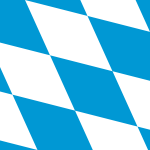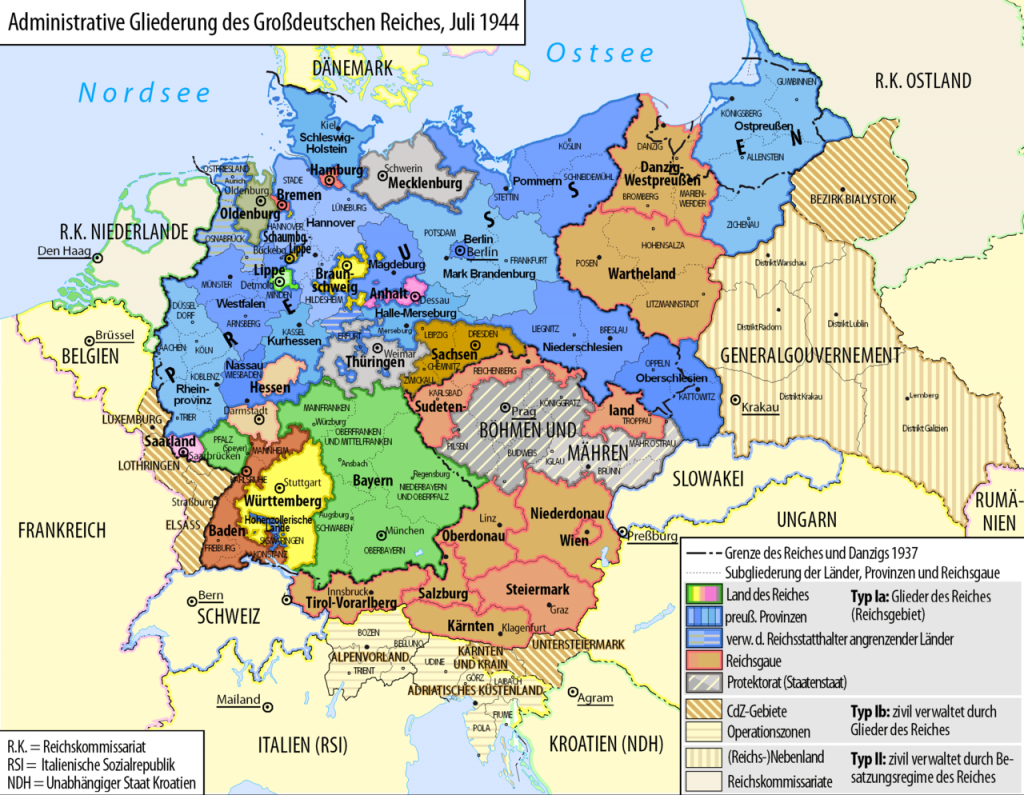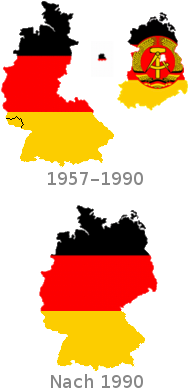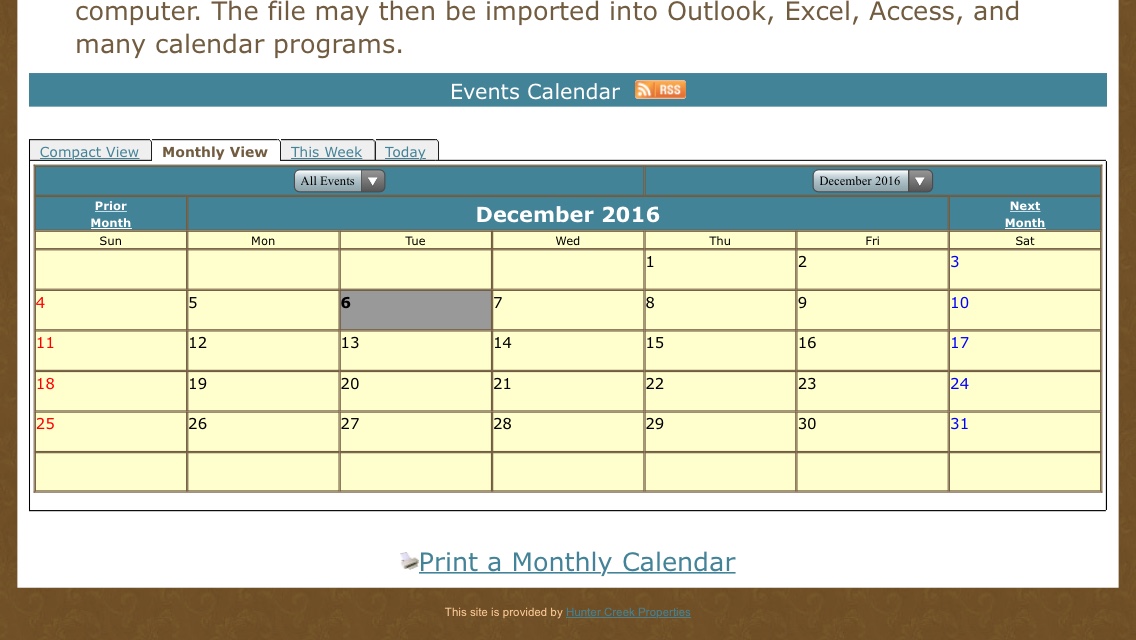This is my first time ever teaching, first time teaching a German culture and language class. First time teaching middle school, first time ever in an American school here in Aspen. I was born in the Netherlands to a Dutch mother and an Indonesian father and moved to Germany in 1979 to the town of Bergen in the state of Lower Saxony, between the cities of Hamburg and Hanover. I grew up there between the ages of 6-16 and have the fondest childhood memories of Germany and to this day kindle a warm love for Germany. I love the value Germans vest in quality. Quality in food, quality in education, technology, construction and service. Even though we don't own a TV at home, I do occasionally tune in to the German TV-online and enjoy their quality programming, mainly on ZDF and ARD.
My goal is to set Aspen middle school students up for success on their upcoming sister city exchange where they will actually travel to Bavarian the ski town of Garmisch Partenkirchen and have a homestay with a fellow student and ocean apart, divided by a language, unified in curiosity. I will try to spark an interest and give reasons to learn the German language. Besides my biased love for Germany, my wife and I were the recipients of an opportunity to do a sister city exchange of a different kind: a ski patrol season exchange with Chamonix, France. In my opinion every international exchange is an amazing opportunity to make friends, grow personally, learn and become a culturally rich human.
The Germany I grew up in
Why bother learning German?
My German friend
My German brother
 I have a special friendship in Germany. In the year 2000 I found that most of my friends were flying on old paragliders. One of the ways of getting a good price on a paraglider was becoming an importer/ dealer. Partly because of our litigious society in which live, most paragliding manufactures companies are in and around the Alps in Europe. Most of the companies already had a rep or dealer. But there was this one company called U-turn in the German town of Villingen-Schwenningen in Germany. It was an up and coming company. I was going to give it a tr and in my best German wrote an email to the CEO. Next thing you know I was wiring money to Germany -which wasn't even mine- and receiving big packages in return. After a couple of big deals I decided to on my upcoming Europe trip go and visit the paragliding companies' owner in Germany, I thought it would be a good idea to meet face to face with whom I've been wiring large sums of money to. I looked the town up on Google earth and it turned to be a really a small. There were only two hotels and they were fairly expensive. I then decided to sign up on couchsurfing.com and low and behold at the time about 40 people were signed up.
I have a special friendship in Germany. In the year 2000 I found that most of my friends were flying on old paragliders. One of the ways of getting a good price on a paraglider was becoming an importer/ dealer. Partly because of our litigious society in which live, most paragliding manufactures companies are in and around the Alps in Europe. Most of the companies already had a rep or dealer. But there was this one company called U-turn in the German town of Villingen-Schwenningen in Germany. It was an up and coming company. I was going to give it a tr and in my best German wrote an email to the CEO. Next thing you know I was wiring money to Germany -which wasn't even mine- and receiving big packages in return. After a couple of big deals I decided to on my upcoming Europe trip go and visit the paragliding companies' owner in Germany, I thought it would be a good idea to meet face to face with whom I've been wiring large sums of money to. I looked the town up on Google earth and it turned to be a really a small. There were only two hotels and they were fairly expensive. I then decided to sign up on couchsurfing.com and low and behold at the time about 40 people were signed up.
Amongst others was Martin Berliner also a paragliding enthusiast. It was he who invited me to stay on his couch while I was visiting U-turn. When I arrived in Stuttgart and checked my email he had written me a note that he had a friend with a medical emergency in Thailand and was on his way to the airport in Frankfurt leaving for Bangkok... But he told me which bus to take to Schluchsee Strasse 12 and that the keys to the apartment were in the pocket of the harness of his paramotor next to the garage. He told me to let myself in and make myself comfortable and had already told his roommate about my arrival. He had written down the password to the wireless as well as left on his desk, next to the computer, the keys to his mountain bike. I stayed there for three days and never met the guy. I was blown away by the hospitality.
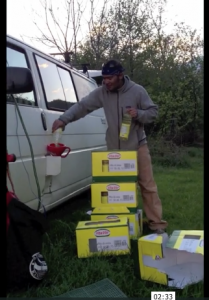
The very next year I was going to visit Europe again. I decided to meet up with this dude who had hosted of me in this house for free without even knowing me. As it turned out he had himself taken three weeks of vacation. We loaded up his Volkswagen van and for three weeks toured around the Alps, flew paragliders everyday and met a ton of nice people traveling
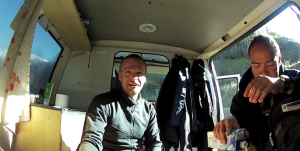
Upon the the following visit to Germany I had gotten engaged to -now- my wife Rachel and decided to take her on a paragliding trip around the Alps. Martin had since beaten me to it and was now married and could not join us on our trip. He was too kind and let Rachel and I use his Volkswagen van. We had the most amazing trip traveling and paragliding in France Switzerland and Italy.
Pre Honneymoon
Last year when I was lucky enough to go on Ski Patrol exchange to Chamonix, it was again Martin who helped us to buy our Volkswagen ambulance in Germany and help us convert it into a camper which really turned it into a trip of a lifetime. Even though we lived in France I kept the van registered in Germany, but most important of all I kept a membership German roadside assistance with European wide coverage.
Martin remains to be one of my dearest friends in Europe. And we are looking forward to seeing him and his wife this coming fall.
It is worth learning to speak German because it will can give you the key to 80 million hearts and souls living in the country of Germany bound by their language, their soccer and their history.
Colorado
| Population | 5,456,574 |
|---|---|
| • Area | 104,094 sq mi |
| • Density | 52.0/sq mi (19.9/km2) |
Aspen
| Country | United States |
|---|---|
| State | Colorado |
| Region | Western Slope |
| County | Pitkin |
| Mayor | Steve Skadron |
| Population | 6,658 (2010) |
| Density | 1,900/sq mi (734/km2) |
| Timezone | MST (UTC-7) |
| ZIP Code | 81611, 81612 (PO Boxes) |
| Area code | 970 |
| Website | http://www.aspenpitkin.com/ |
Aspen is situated in a remote area of the Rocky Mountains' Sawatch Range and Elk Mountains, along the Roaring Fork River at an elevation just below 8,000 feet (2,400 m) above sea level on the Western Slope, 11 miles (18 km) west of the Continental Divide.
Garmisch Partenkirchen
| Country | Germany |
|---|---|
| State | Bavaria |
| Admin. region | Oberbayern |
| District | Garmisch-Partenkirchen |
| • Mayor | Thomas Schmid |
| • Population | 26,821 |
| • Density | 130/km2 (340/sq mi) |
| Time zone | CET/CEST (UTC+1/+2) |
| Postal codes | 82467 |
| Dialling codes | 08821 |
| Vehicle registration | GAP |
| Website | garmisch-partenkirchen.de |
Garmisch-Partenkirchen (German pronunciation: [ˈɡaʁmɪʃ paʁtn̩ˈkɪʁçn̩]) is a mountain resort town in Bavaria, southern Germany. It is the administrative centre of the district of Garmisch-Partenkirchen, in the Oberbayern region, and the district is on the border with Austria. Nearby is Germany's highest mountain, Zugspitze, at 2,962 m (9,718 ft.).
The town was the site of the 1936 Winter Olympic Games.
Different latitudes, different attitudes
Latitudes make up for a big part how long the nights are in winter and days in summer, what crops grow for us to eat. This comparing latitudes will shed a perspective to friends as to where you live, compared to known latitudes across oceans. You friends in Germany certainly will raise their eyebrows when you tell them Aspen is on about the same latitude as Lisbon, Valencia, Athens or Istanbul. Just as you can only imagine that the latitude northern border between Germany and Denmark in the far north is goes through the Polar Bear Provincial Park in Ontario!
The difference on summer solstice is
Aspen on June 21st:
Sunrise 05:41 AM Sunset 08:37 PM = 14:56hrs daylight
Garmisch
Sunrise 05:19 AM Sunset 09:17 PM = 16:08hrs daylight
How does it compare?
This webpage allows to compare next each other, maps and satellite imagery to get a grasp on how big things are relative to each other. In map mode contour lines even allow to elevations to compare.
Charlemagne (I like to watch at 1.25 x speed)
WWI
The trigger for the war was the assassination of Archduke Franz Ferdinand of Austria, heir to the throne of Austria-Hungary, by Yugoslav nationalist Gavrilo Princip in Sarajevo on 28 June 1914. This set off a diplomatic crisis when Austria-Hungary delivered an ultimatum to the Kingdom of Serbia,and entangled international alliances formed over the previous decades were invoked. Within weeks, the major powers were at war and the conflict soon spread around the world.
On 28 July, the Austro-Hungarians declared war on Serbia.As Russia mobilised in support of Serbia, Germany invaded neutral Belgium and Luxembourg before moving towards France, leading the United Kingdom to declare war on Germany. After the German march on Paris was halted, what became known as the Western Front settled into a battle of attrition, with a trench linethat changed little until 1917.
Nazi Germany
Nazi Germany is the common English name for the period in German history from 1933 to 1945, when Germany was governed by a dictatorship under the control of Adolf Hitler and the Nazi Party (NSDAP). Under Hitler's rule, Germany was transformed into a fascist state in which the Nazi Party took totalitarian control over nearly all aspects of life. The official name of the state was Deutsches Reich from 1933 to 1943 and Großdeutsches Reich ("Greater German Reich") from 1943 to 1945. The period is also known under the names the Third Reich (German: Drittes Reich) and the National Socialist Period (German: Zeit des Nationalsozialismus, abbreviated as NS-Zeit). The Nazi regime came to an end after the Allied Powers defeated Germany in May 1945, ending World War II in Europe.
Hitler was appointed Chancellor of Germany by the President of the Weimar Republic Paul von Hindenburg on 30 January 1933. The Nazi Party then began to eliminate all political opposition and consolidate its power. Hindenburg died on 2 August 1934, and Hitler became dictator of Germany by merging the powers and offices of the Chancellery and Presidency. A national referendum held 19 August 1934 confirmed Hitler as sole Führer (leader) of Germany. All power was centralised in Hitler's person, and his word became above all laws. The government was not a coordinated, co-operating body, but a collection of factions struggling for power and Hitler's favour. In the midst of the Great Depression, the Nazis restored economic stability and ended mass unemployment using heavy military spending and a mixed economy. Extensive public works were undertaken, including the construction of Autobahnen (motorways). The return to economic stability boosted the regime's popularity.
Weat Germany Post WW2
On 4–11 February 1945 leaders from the United States, the United Kingdom and the Soviet Union held the Yalta Conference where future arrangements as regards post-war Europe and strategy against Japan in the Pacific
were negotiated. The conference agreed to split Germany into four occupation zones: a French Zone in the far west; a British Zone in the northwest; an American Zone in the south; and a Soviet Zone in the east. At the time, the intention was not to split Germany, only to designate zones of administration.
The Federal Republic of Germany was established from eleven states formed in the three Allied Zones of occupation held by the United States, the United Kingdom and France (the "Western Zones"). US and British forces remained in the country throughout the Cold War. Its population grew from roughly 51 million in 1950 to more than 63 million in 1990. The city of Bonn was its de facto capital city . The fourth Allied occupation zone (the East Zone, or Ostzone) was held by the Soviet Union. The parts of this zone lying east of the Oder-Neisse were annexed by Communist Poland; the remaining central part around Berlin became the communist German Democratic Republic (abbreviated GDR; in German Deutsche Demokratische Republik or DDR) with its de facto capital in East Berlin.
East Germany
The East German state was defined by two dominant forces – Soviet communism on the one hand, and German traditions filtered through the interwar experiences of German communists on the other. It was constrained by the powerful example of the increasingly prosperous West, to which East Germans compared their state. The changes made by the communists were most apparent in ending capitalism and transforming industry and agriculture, and in the thrust of the educational system and the media. On the other hand, there was relatively little change made in the historically independent domains of the sciences, the engineering professions, the Protestant churches, and in many bourgeois lifestyles.
The East German Border
The inner German border (German: innerdeutsche Grenze or deutsch-deutsche Grenze; initially also Zonengrenze) was the border between the German Democratic Republic (GDR, East Germany) and the Federal Republic of Germany (FRG, West Germany) from 1949 to 1990. Not including the similar but physically separate Berlin Wall, the border was 1,393 kilometres (866 mi) long and ran from the Baltic Sea to Czechoslovakia.
It was formally established on 1 July 1945 as the boundary between the Western and Soviet occupation zones of former Nazi Germany. On the eastern side, it was made one of the world's most heavily fortified frontiers, defined by a continuous line of high metal fences and walls, barbed wire, alarms, anti-vehicle ditches, watchtowers, automatic booby traps and minefields. It was patrolled by 50,000 armed GDR guards who faced tens of thousands of West German, British and US guards and soldiers. In the hinterlands behind the border were more than a million North Atlantic Treaty Organisation (NATO) and Warsaw Pact troops.
The border was a physical manifestation of Winston Churchill's metaphorical Iron Curtain that separated the Soviet and Western blocs during the Cold War. It marked the boundary between two ideological systems – capitalism and communism. Built by East Germany in phases from 1952 to the late 1980s, the fortifications were constructed to stop the large-scale emigration of East German citizens to the West, about 1,000 of whom are said to have died trying to cross it during its 45-year existence. It caused widespread economic and social disruption on both sides; East Germans living in the region suffered especially draconian restrictions.
The better-known Berlin Wall was a physically separate, less elaborate, and much shorter border barrier surrounding West Berlin, more than 155 kilometres (96 mi) to the east of the inner German border (Berlin having been similarly divided by the four powers after World War II, despite the entire city being in the Soviet zone, thus creating an enclave of West German territory surrounded by East German territory). On 9 November 1989, the East German government announced the opening of the Berlin Wall and the inner German border. Over the following days, millions of East Germans poured into the West to visit. Hundreds of thousands moved permanently to the West in the following months as more crossings were opened, and ties between long-divided communities were re-established as border controls became little more than a cursory formality. The inner German border was not completely abandoned until 1 July 1990, exactly 45 years to the day since its establishment, and only three months before German reunification formally ended Germany's division.
East German Border
The German reunification
The German reunification (German: Deutsche Wiedervereinigung) was the process in 1990 in which the German Democratic Republic (GDR/East Germany) joined the Federal Republic of Germany (FRG/West Germany) to form the reunited nation of Germany, and when Berlin reunited into a single city, as provided by its then Grundgesetz constitution Article 23. The end of the unification process is officially referred to as German unity (German: Deutsche Einheit), celebrated on 3 October (German Unity Day) (German: Tag der deutschen Einheit). Following German reunification, Berlin was once again designated as the capital of united Germany.
The East German regime started to falter in May 1989, when the removal of Hungary's border fence with Austria opened a hole in the Iron Curtain. It caused an exodus of thousands of East Germans fleeing to West Germany and Austria via Hungary. The Peaceful Revolution, a series of protests by East Germans, led to the GDR's first free elections on 18 March 1990, and to the negotiations between the GDR and FRG that culminated in a Unification Treaty.
Reunified Berlin
While the fall of the Berlin Wall had broad economic, political and social impacts globally, it also had significant consequence for the local urban environment. In fact, the events of 9 November 1989 saw East Berlin and West Berlin, two halves of a single city that had ignored one another for the better part of 40 years, finally "in confrontation with one another". "The fall of the Berlin Wall [marked] the end of 40 years of divided political, economic and cultural histories" and was "accompanied by a strong belief that [the city] was now back on its 'natural' way to become again a major metropolis" In the context of urban planning, in addition to a wealth of new opportunity and the symbolism of two former independent nations being re-joined, the reunification of Berlin presented numerous challenges. The city underwent massive redevelopment, involving the political, economic and cultural environment of both East and West Berlin. However, the "scar" left by the Wall, which ran directly through the very heart of the city had consequences for the urban environment that planning still needs to address. Despite planning efforts, significant disparity between East and West remain.
Urban planning issues
The reunification of Berlin presented legal, political and technical challenges for the urban environment. The political division and physical separation of the city for more than 30 years saw the East and the West develop their own distinct urban forms, with many of these differences still visible to this day. East and West Berlin were directed by two separate political and urban agendas. East Berlin developed a mono-centric structure with lower level density and a functional mix in the city's core, while West Berlin was poly-centric in nature, with a high-density, multi-functional city centre.The two political systems allocated funds to post-war reconstruction differently, based on political priorities, and this had consequences for the reunification of the city. West Berlin had received considerably more financial assistance for reconstruction and refurbishment. There was considerable disparity in the general condition of many of the buildings; at the time of reunification, East Berlin still contained many leveled areas, which were previous sites of destroyed buildings from World War II, as well as damaged buildings that had not been repaired. An immediate challenge facing the reunified city was the need for physical connectivity between the East and the West, specifically the organisation of infrastructure. In the period following World War II, approximately half of the railway lines were removed in East Berlin.
Snap facts
- 41 properties in Germany on the World Heritage List.
Germany is the world's second most respected nation among 50 countries in 2013. A global opinion poll for the BBC revealed that Germany is recognized for having the most positive influence in the world in 2011, 2013, and 2014.
Around the world, German has approximately 100 million native speakers and also about 80 million non-native speakers.
German philosophers have helped shape western philosophy from as early as the Middle Ages (Albertus Magnus). Later, Leibniz (17th century) and most importantly Kant played central roles in the history of philosophy. Kantianism inspired the work of Schopenhauer and Nietzsche as well as German idealism defended by Fichte and Hegel. Marx and Engels developed communist theory in the second half of the 19th century while Heidegger and Gadamer pursued the tradition of German philosophy in the 20th century.
Be curious
You are now the ambassadors to the truth, you are going to have the privilege of getting a first-hand account. Do your diligence and go out for us all and look around. Do you guys drink the same drinks? Observe culinary, what does there be the breakfast look like, school lunches? How do our schools differ in grading? What time do you get up in the mornings to go to school and what time do mom and dad make you go to bed at night. What do their grocery stores look like? how much does the supermarket in Garmisch differ from City market in Aspen?
And when you are doing that, be in the moment, connect with your counterpart, be curious and ask questions. Look for the endless similarities that connect you as friends: who do you turn to when you had a bad day? Whats your favorite?
If at the end of the day, your findings are of that no matter how subtle or extreme differences between people and our lives across oceans and mountains are. The one thing we all have in common, is getting along with each other and live a good life. Then promote the worldpeace.
Be curious
| Guten Morgen goot-en mor-gen Good Morning |
Guten Tag goot-en tahk Hello/Good Day |
Guten Abend goot-en ah-bent Good Evening |
| Gute Nacht goot-eh nakht Good Night |
Tag / Hallo / Servus tahk / hah-loh / sair-voohs Hi / Hello / Hi & Bye (Southern Germany & Austria) |
Auf Wiedersehen owf vee-dair-zayn Goodbye |
| Grüß dich / Grüß Gott! Hello! / Greetings! (Southern Germany & Austria) |
Tschüs / Tschau tchews / chow Bye! |
Gehen wir! geh-en veer Let's go! |
| Bis später biss shpay-ter See you later |
Bis bald biss bahlt See you soon |
Bis morgen biss mohr-gen See you tomorrow |
| Bitte bih-tuh Please |
Danke (schön / sehr) dahn-kuh shurn/zair Thank you |
Bitte schön bih-tuh shurn You're welcome |
| Es tut mir leid. ehs toot meer lite I'm sorry |
Entschuldigen Sie ehnt-shool-dih-gun zee Excuse me |
Verzeihung Pardon me |
| Wie geht es Ihnen? vee gayt es ee-nen How are you? (formal) |
Wie geht's? vee gayts How are you? (informal) |
(Sehr) Gut / So lala zair goot / zo lahlah (Very) Good / OK |
| Schlecht / Nicht Gut shlekht / nisht goot Bad / Not good |
Es geht. ess gate I'm ok. (informal) |
Ja / Nein yah / nine Yes / No |
| Wie heißen Sie? vee hie-ssen zee What's your name? (formal) |
Wie heißt du? vee hiesst doo What's your name? (informal) |
Ich heiße... ikh hie-ssuh My name is... [I am called...] |
| Es freut mich. froyt mikh Pleased to meet you. |
Gleichfalls. glykh-fals Likewise. |
Herr / Frau / Fräulein hair / frow / froi-line Mister / Misses / Miss |
| Woher kommen Sie? vo-hair koh-men zee Where are you from? (formal) |
Woher kommst du? vo-hair kohmst doo Where are you from? (informal) |
Ich komme aus... ikh koh-muh ows... I'm from... |
| Wo wohnen Sie? vo voh-nen zee Where do you live? (formal) |
Wo wohnst du? vo vohnst doo Where do you live? (informal) |
Ich wohne in... ikh voh-nuh in I live in... |
| Wie alt sind Sie? vee alt zint zee How old are you? (formal) |
Wie alt bist du? vee alt bisst doo How old are you? (informal) |
Ich bin ____ Jahre alt. ikh bin ____ yaa-reh alt I am ____ years old. |
| Sprechen Sie deutsch? shpreck-en zee doytch Do you speak German? (formal) |
Sprichst du englisch? shprikhst doo eng-lish Do you speak English? (informal) |
Ich spreche (kein)... ikh shpreck-uh kine I (don't) speak... |
| Verstehen Sie? / Verstehst du? fehr-shtay-en zee / fehr-shtayst doo Do you understand? (formal / informal) |
Ich verstehe (nicht). ikh fehr-shtay-eh nikht I (don't) understand. |
Ich weiß (nicht). ikh vise nikht I (don't) know. |
| Können Sie mir helfen? ker-nen zee meer hell-fen Can you help me? (formal) |
Kannst du mir helfen? kahnst doo meer hell-fen Can you help me? (informal) |
Natürlich / Gerne nah-tewr-likh / gair-nuh Of course / Gladly |
| Kann ich Ihnen helfen? kahn ikh ee-nen hell-fen May I help you? (formal) |
Kann ich dir helfen? kahn ikh deer hell-fen May I help you? (informal) |
Wie bitte? vee bih-tuh What? Pardon me? |
| Wie heißt ___ auf Deutsch? vee heist ___ owf doytch How do you say ___ in German? |
Wo ist / Wo sind... ? voh ist / voh zint Where is / Where are... ? |
Es gibt... ess geept There is / are... |
| Was ist los? vahs ist lohs What's the matter? |
Das macht nichts. dass makht nikhts It doesn't matter. |
Das ist mir egal. dass ist meer eh-gahl I don't care. |
| Keine Angst! ky-nuh ahngst Don't worry! |
Ich habe es vergessen. ikh hah-buh ess fehr-geh-sen I forgot. |
Jetzt muss ich gehen. yetz mooss ikh geh-en I must go now. |
| Ich habe Hunger / Durst. ikh hah-buh hoong-er / dirst I'm hungry / thirsty. |
Ich bin krank / müde. ikh bin krahnk moo-duh I'm sick / tired. |
Ich habe Langeweile. ikh hah-buh lahn-guh-vy-luh I'm bored. |
| Ich möchte / Ich hätte gern... ikh merkh-tuh / ikh heh-tuh gairn I'd like... |
Das gefällt mir. dahs geh-fehlt meer I like it. |
Prima / Toll / Super! pree-mah / tohl / zoo-pair Great / Fantastic! |
| Gesundheit! geh-soont-hyt Bless you! |
Herzlichen Glückwunsch! herts-likh-en glewk-voonsh Congratulations! |
Sei ruhig! zy roo-hikh Be quiet! (informal) |
| Willkommen! vil-koh-men Welcome! |
Viel Glück! feel glewk Good luck! |
Schauen Sie mal! / Schau mal! show-en zee mal / show mal Look! (formal / informal) |
| Bitte schön? Yes? / What would you like to order? |
Was darf's sein? What can I get you? / How can I help you? |
Sonst noch etwas? Anything else? |
| Bitte schön. Here you go. (handing something to someone) |
Zahlen bitte! The check, please! |
Stimmt so. Keep the change. |
| Ich bin satt. I'm full. |
Mir ist schlecht. I feel sick. |
Es tut mir weh. It hurts. |
| Ich liebe dich. ikh leeb-uh dikh I love you. (informal) |
Du fehlst mir. I miss you. (informal) |
Alles ist in Ordnung. Everything is fine. |
| Wie wäre es mit ... ? How about...? |
Was für ein...? What kind of (a)...? |
Nicht wahr? [general tag question] |
























